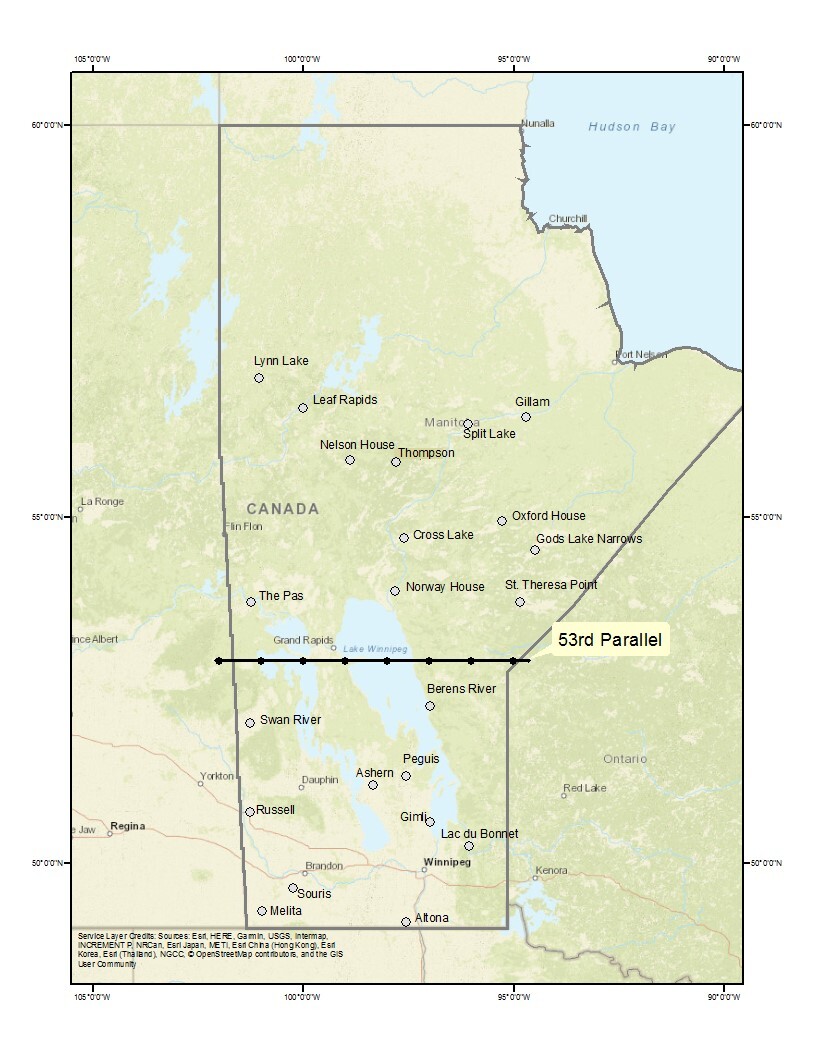Symptomatic essential workers can now be tested for the coronavirus, and travel to northern Manitoba is now restricted, the province’s chief medical officer announced on Thursday.

Dr. Brent Roussin said the travel restriction does not apply to public health workers. People who live above the 53rd parallel may still move around northern Manitoba.
Residents of northern and remote communities may continue to move within the north and delivery of goods and services may continue. Exceptions include those who travel to the north for employment, medical treatment or to facilitate child-custody agreements.
Roussin said the restriction is meant to protect communities that are particularly vulnerable and isolated.
Also, Roussin has ordered that any person who travels into Manitoba from another province must self-isolate.
Roussin clarified some of his recent public health orders, including that hotels can operate but common areas must close, campgrounds can operate for RV vehicles and garden centres and greenhouses can operate.
Appliance, electronics and furniture stores are excluded and should not be open.
The measures are being put in place to prevent the virus from being reimported into the province, said Roussin, calling it an “ongoing threat.”

Get weekly health news
The new public health orders are in effect until May 1.
Expanded testing
Roussin also announced testing parameters in Manitoba are being expanded to include symptomatic essential service workers, anyone who lives with a health-care worker or first responder and is showing symptoms and anyone who has symptoms and lives with someone who works in a congregate setting, such as a correctional facility, shelter or long-term care home. The changes come after days of small increases in the number of cases in the province.
“There is no backlog at the lab, so the low numbers all reflect the demand in the amount of people showing up for testing,” Roussin said. “So I think that’s our biggest indicator that we want to expand testing.”
The numbers
Four more cases of the novel coronavirus have now been confirmed.
As of Thursday, the total number of confirmed and probable cases was 250.
Eight people were in hospital, with four in an intensive care unit. There were 124 active cases, and 121 people have recovered.
Cadham Provincial Laboratory performed 449 tests Wednesday. A total of 18,349 tests have been performed since early February.
Questions about COVID-19? Here are some things you need to know:
Health officials caution against all international travel. Returning travellers are legally obligated to self-isolate for 14 days, beginning March 26, in case they develop symptoms and to prevent spreading the virus to others. Some provinces and territories have also implemented additional recommendations or enforcement measures to ensure those returning to the area self-isolate.
Symptoms can include fever, cough and difficulty breathing — very similar to a cold or flu. Some people can develop a more severe illness. People most at risk of this include older adults and people with severe chronic medical conditions like heart, lung or kidney disease. If you develop symptoms, contact public health authorities.
To prevent the virus from spreading, experts recommend frequent handwashing and coughing into your sleeve. They also recommend minimizing contact with others, staying home as much as possible and maintaining a distance of two metres from other people if you go out.
For full COVID-19 coverage from Global News, click here.
- Canadian woman charged with illegally crossing into U.S., kicking border agent’s face
- A new ‘cold’ war? Canada looks to bolster Arctic security, sovereignty
- Canadian furniture industry still ‘reeling’ after Trump pauses tariff spike
- Ottawa propose fines of up to $1M for violating foreign influence registry rules









Comments